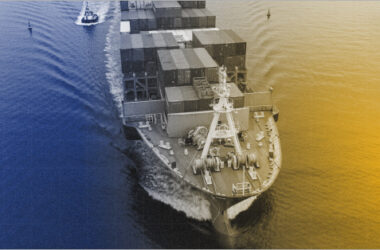Running a business that involves the transportation of commodities on or around water, land, or air is exciting but comes with unique risks. Whether you own a fishing fleet, operate a shipping company, or manage a waterfront business, protecting your assets is crucial. Marine Insurance offers a much-needed helping hand here. However, the domain of Marine Insurance policies can feel like uncharted territory at times with complex terms and multiple coverage options. Moreover, finding the best Marine Insurance Policy can overwhelm even seasoned business owners. In this blog, we will demystify the process of buying Marine Insurance policies in India. You will discover different marine insurance types available, the steps to get insured, and tips to ensure your business sails smoothly through any challenges. Let’s get started on securing the best Marine Insurance Policy for your business!
Understanding Marine Insurance: The Basics
Before diving into the buying process, it’s important to understand what Marine Insurance entails and the different Marine Insurance types available:
What is Marine Insurance?
Marine Insurance provides coverage for the loss or damage of goods, vessels, and other assets involved in transportation by sea, air, or land. These insurance policies protect businesses against risks such as theft, accidents, natural disasters, and piracy. Marine Insurance coverage ensures that businesses can continue their operations without suffering major financial setbacks.
Marine Insurance Types:
Understanding the different types of Marine Insurance is essential for selecting the right coverage. Here are the main types available in India:
1. Marine Open Insurance
- Covers goods during transit by sea, air, rail, or road.
- Offers continuous coverage for all shipments under one policy
- Protects the cargo against risks like theft, damage and loss throughout the transit journey
- Simplifies the process and saves time by ensuring seamless protection for all shipments under a single policy
2. Single Transit Insurance
- Covers a specific shipment or consignment during a single journey
- Offers financial protection against risks such as damage, loss or theft of goods during the journey from the starting point to the final destination
- Ideal for shipping companies and vessel owners who ship goods occasionally and do not need continuous coverage.
3. Sales Turnover Policy
- Here, businesses insure their estimated annual sales turnover, which becomes the sum insured.
- Ensures coverage for all transits needed to achieve this estimated turnover
- Premiums are calculated based on the total sales turnover, offering cost-effective coverage for all transits.
Coverage Inclusions Under Marine Insurance
Marine Insurance in India offers comprehensive coverage, including:
- Natural Calamities: Marine Insurance provides protection against damages caused by storms, floods, and other weather-related events.
- Theft or Piracy: This marine insurance policy covers the risk of stolen goods during transit, including acts of piracy in high-risk zones.
- Accidents: This cargo insurance coverage includes damages due to collisions, fire, or capsizing.
- War and Strikes: Many marine cargo insurance policies provide optional add-ons for risks like war, terrorism, and strikes.
- General Average Contribution: A unique maritime principle where all stakeholders share losses if cargo is jettisoned to save the vessel.
These Marine Insurance coverages ensure that stakeholders are protected against a wide array of risks, fostering seamless trade.
Points to Consider Before Buying Marine Insurance for Your Business
A. Assess Your Business Needs
To buy the best Marine Insurance Policy for your business, you must first evaluate your business’s unique needs. Here’s how:
- Nature of Goods and Shipping Routes:
Consider the type of goods you transport. For instance, fragile, perishable, or high-value items may require specialised cargo insurance coverage. Analyse the routes your shipments take, as certain regions may have higher risks of piracy, extreme weather, or geopolitical tensions. - Volume and Frequency of Shipments:
If your business ships goods frequently, you might need an annual policy instead of single-voyage marine insurance coverage. Understanding shipment frequency helps tailor the policy to your operations and ensures uninterrupted protection. - Specific Risks:
Identify risks specific to your industry or trade routes. For example, exporters dealing with seasonal goods may require cargo insurance coverage for delays, spoilage, or storage risks. - Customised Coverage:
Opt for insurance policies that can be customised to address your specific needs, such as additional coverage for war risks, strikes, or extended transit delays. Tailored cargo insurance policies ensure optimal protection without overpaying for unnecessary features. Keep in mind that adding these coverages may increase your premiums.
B. Research Insurance Providers
Choosing the right insurer is a critical step in the process. Here’s how to identify the best Marine Insurance provider for your business:
- Credibility and Experience:
Look for insurers with a strong track record and extensive experience in providing Marine Insurance. Verify their financial stability, reputation, and ability to handle complex claims efficiently. - Claim Settlement Ratio:
A high claim settlement ratio indicates the insurer’s reliability in processing claims. This is particularly important for minimising delays and disputes during the claims process. Check for testimonials and case studies to gauge their effectiveness. - Specialisation in Indian Trade:
Choose providers who are familiar with India’s trade landscape, including its regulatory framework, trade routes, and maritime challenges. This ensures that the insurer understands the unique risks your business may face. - Customer Reviews and Feedback:
Read reviews and testimonials from other businesses to gauge the insurer’s quality of service and responsiveness. Positive feedback is a strong indicator of reliability and customer satisfaction.
C. Ponder Over the Types of Coverage to Avail
Marine Insurance policies offer a range of coverage options to meet diverse business needs. Here are some key types:
- Comprehensive Coverage:
A Marine Insurance Policy provides coverage for a wide range of risks, including theft, natural disasters, accidents, and delays. This type of coverage is ideal for businesses that require all-encompassing protection. - Specific Risk Coverage:
Focuses on particular risks relevant to your trade, such as piracy, regional weather conditions, or specialised goods. Businesses with niche requirements often opt for this type of coverage. - Additional Coverages:
- War Risks: Covers losses due to conflicts or war in specific regions. This is essential for businesses operating in politically unstable areas.
- Strikes and Civil Commotion: Protects against disruptions caused by labour strikes, protests, or civil unrest.
- Delay in Transit: Ideal for time-sensitive shipments where delays can result in financial losses or contract breaches.
Steps to Purchase Marine Insurance for Your Business
Now that you have done the ‘homework’, follow these steps to purchase the right Marine Insurance Policy for your business:
Step 1: Gather Business and Shipment Information
Compile detailed information about your business operations, including:
- Type and value of goods shipped.
- Frequency and volume of shipments.
- Trade routes and destinations.
- Any previous incidents or claims.
Step 2: Consult Insurance Brokers or Advisors
Engage with experienced brokers or advisors who specialise in Marine Insurance. They can help you understand policy options, identify risks, and negotiate better terms with insurers. However, be aware that brokers may charge a fee or commission. You could also consider consulting directly with insurance companies to compare options.
Step 3: Request and Compare Quotes
Request quotes from multiple insurers. Compare their coverage options, premiums, and terms to find the policy that best fits your requirements. Use online comparison tools to streamline this process and identify the most cost-effective solutions.
Step 4: Review Policy Terms and Conditions
Carefully read the fine print to understand:
- Inclusions and exclusions: Ensure you know what is covered and what is not.
- Premium payment terms.
- Claim procedures and timelines.
- Deductibles and limits of liability. Ensure the policy aligns with your specific needs and risk profile. Seek clarification on any ambiguous terms.
Step 5: Finalise and Purchase the Policy
Once satisfied with the terms, finalise and purchase the policy. Retain all documentation for future reference and claims processing. Ensure that the policy is active before initiating any shipments.
Essential Tips for First-Time Buyers
If you are buying Marine Insurance for the first time, consider these tips:
- Start Small: Begin with basic coverage and upgrade as your business expands or risks increase. This allows you to manage costs while learning the nuances of Marine Insurance.
- Ask Questions: Clarify doubts about policy terms, exclusions, and claims processes. An informed decision is always better.
- Avoid Underinsurance: Ensure the policy covers the full value of your goods, including potential ancillary costs like freight and customs duties.
- Plan for the Long Term: Consider annual policies if you ship goods regularly, as they are often more cost-effective and reduce administrative burden.
Final Thoughts:
Marine Insurance is a cornerstone of risk management for businesses involved in goods transportation. By understanding your needs, researching insurers, and following a systematic approach, you can secure the right coverage for your operations. Protecting your shipments not only ensures financial security but also builds trust with clients and partners.
Don’t wait for a setback to highlight the importance of Marine Insurance—take proactive steps today to safeguard your business’s future. Contact a trusted Marine Insurance provider or advisor to get started on your journey toward comprehensive risk management.








